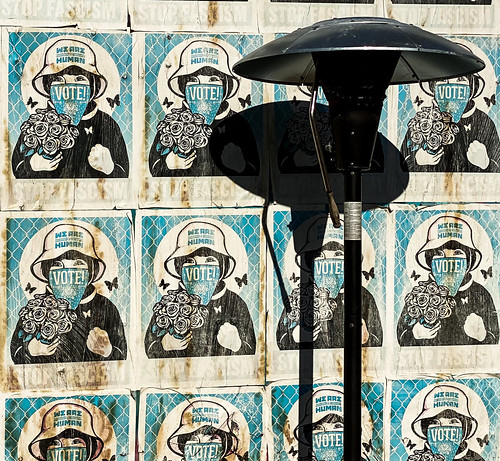Sen. Charles Perry: Why I voted against Ken Paxton impeachment, and how ‘everyone lost’
Voted #Voted

The impeachment trial of Warren Kenneth Paxton Jr., only the third in Texas history, has ended. I write this with the intent to provide perspective into the impeachment process from a Texas Senator who, by the Texas Constitution, has the roles of juror and judge. The hope is to give transparency to a non-transparent process.
Sen. Charles Perry
The Texas Constitution grants the legislature 100% of the rulemaking for impeachment trials. Therefore, impeachment is a 100% political process. The rules of impeachment grant discretion to the House of Representatives on how to originate, investigate, and refer an impeachment to the Senate for trial, where the Senate gets to develop the rules for the trial. There are no baseline standards. In effect, traditional legal standards do not apply unless the legislature chooses to apply them. That said, the previous two impeachments mirrored the criminal justice system. The House violated no rules of investigation or referral to the Senate because they are allowed to design their own process. The Senate adopted trial procedures grounded in the criminal justice system. Specific to the Ken Paxton trial, the Texas Rules of Evidence, court administration, and standard for the burden of proof “beyond a reasonable doubt” were adopted.
On May 27, 2023, the House referred 20 Articles of Impeachment to the Texas Senate. The Senate is constitutionally required to take up the articles. The articles reflected items that had been in the media for years as well as some newer charges. It was the House’s responsibility to prove each of the charges beyond a reasonable doubt. The Senate’s adopted rules held four of the articles in “abeyance” because the Attorney General is still facing pending charges related to alleged securities violations from eight years ago. Effectively, the Senate considered 16 of the 20 articles making it 16 mini-trials. Thus, there were 16 votes on the remaining articles and a vote on dismissing the articles held in abeyance. In addition, there were 16 pre-trial motions voted on by the jurors. Thus, at the end of the process, we voted 33 times.
The articles were each decided on individually, but they were not divisible. In other words, an article that contained three charges required all three to be proven or the whole article would require an acquittal. Additionally, the article would need to be correct in form as well as subject matter. Jurors were to interpret the article as literally written and not based on what the charge should have said. Technical errors in the articles made some articles void. Therefore, several articles automatically failed.
My role as a juror was to determine two things. First, was the article factually supported, did it happen? Second, if it happened, did it rise to the level of impeachment? In other words, does the crime fit the time? Sixteen different articles went through the two-part test. Every Senator took a deep dive into the information presented to make their decision. The final vote was determined based on each Senator’s vote, not a consensus vote of the 30 eligible voting Senators. In the final analysis, a majority of the Senators determined that the House had not met the high bar needed to remove an elected official from office.
As a juror I made a decision based on the facts. As a judge, I considered the public impact on a more global level. Deliberations consisted of exhibit reviews and dialogue amongst members from all political persuasions. Anyone believing the politics of an impeachment can be separated
from the process itself is naïve. No one will remove an elected official from office unless the burden of proof beyond a reasonable doubt is proven by more than circumstantial evidence. The “if there’s smoke, there’s fire” standard, is not a legal standard of proof. The House strategy was built around eight former employees of the Office of the Attorney General. The House did not bridge the gap between their testimony and the evidence. I do believe that Ken Paxton overrode internal policies that are meant to protect the public as well as the agency. He was within his rights to do so, but this should serve as a wake-up call to stay within the lines. The conspiracy of personal benefit to the detriment of the public was never tied up with certainty.
My personal belief is that the unanswered questions created reasonable doubt and may have been answered had more time been devoted to the process before the Senate referral. Impeachment reforms need to be made to protect the integrity of the process.
In the end, EVERYONE LOST- witnesses had to publicly relive their stories, Ken Paxton was involved in one more drama, and the political divide grew wider because half of the population would not be satisfied regardless of the decision.
(State Sen. Charles Perry is a Lubbock Republican who represents Senate District 28 covering Lubbock, Abilene, San Angelo and Childress. He voted against all articles of impeachment in Attorney Gen. Ken Paxton’s trial this month in Austin.)
This article originally appeared on Lubbock Avalanche-Journal: Sen. Perry why I voted against Paxton impeachment, how ‘everyone lost’